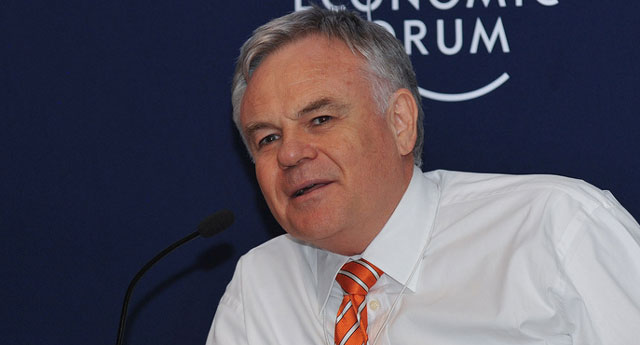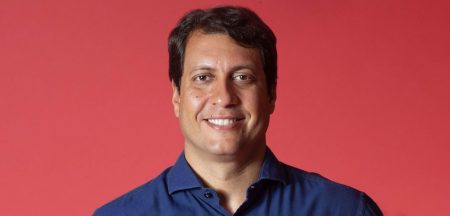
A coordinated effort is needed to align South Africa’s foreign investor message, Naspers chairman Koos Bekker said on Thursday.
Bekker believes cabinet or an integrated structure should align policies and enforce the same public line to attract foreign investment.
In an interview with Fin24 at his Naspers office in Cape Town, the former CEO of South Africa’s largest company said the country has many positives, but that an uncoordinated government was hampering investor confidence.
“One of our biggest problems is our lack of economic policy coordination,” Bekker, 62, said. “We have five or so government departments in the economic cluster. Every [department has] their own policy: there is zero coordination, there is no consistent message.”
After 17 years as Naspers CEO, Bekker resigned in April 2014 and returned as chairman in April 2015 after a year’s sabbatical, during which time he spent most of his time lecturing at universities around the world.
His predecessor, Ton Vosloo, stepped down on his return after 23 years in the chairman seat.
Bekker said South Africa was standing in a queue with a number of emerging markets. “There are about 200 markets today that you can invest in,” he said. “We’re being evaluated and the message coming across to international investors isn’t consistently good.”
The former CEO headed up Naspers for three terms from 1997 until 2014 and controversially elected not to take a salary in return for a more lucrative share option.
“Someone in agriculture says something about foreign investors not being welcomed to buy farms and he [an investor] sees it in terms of his department,” he said. “But there’s a spillover effect and an investor … is saying, ‘well, I hear noises from South Africa, which sounds as if I’m not welcome as an investor’.
“They don’t read the fine print, they get a broad message,” he said. “Or they read about xenophobia … and the net impression of South Africa is an uncoordinated policy. Every minister shouts his own line. Some support Gear [Growth, Employment and Redistribution], some oppose it, some want to nationalise — it’s a very inconsistent message.
“The biggest thing we can do in South Africa is to develop a coherent economic policy that everyone believes in and everyone sings to the same hymn sheet, to say to foreign investors: ‘we want your money, we want you to create jobs in this country. Come along and we [will] look after you’.”
SA has improved under the ANC
Bekker said that the ANC’s economic record of governing South Africa since democracy in 1994 was impressive.
“If you do a calculation of all the wealth that existed in 1994 at the political transition and all the wealth that exists today — that’s everything [from] shares, property, cars, savings, everything — you will find that more than 50% of all the wealth that exists today was created since 1994.
“That’s no mean achievement. Contrary to people’s usual perceptions that wealth accumulates slowly and that previous regimes built the country and built the wealthy, it’s not true.”
However, Bekker said the ANC could be more strategic when marketing the country to investors.
“The ANC and the cabinet have not found a way to align the economic departments to sing to the same hymn sheet,” he said.
“There are so many positives, but it needs to be aligned and coordinated into a single policy. Then we need to stick to the hymn sheet.”
Don’t blame the media
Government officials often criticise the media for its negative approach when covering topics such as xenophobia, corruption and load shedding.
It has also been trying to create a controversial law that protects sensitive state information, but in 2013 President Jacob Zuma sent the Protection of State Information Bill back to parliament for further consideration.
Bekker said if the media only reported on the “good story” and hid the bad, investors would leave the country faster than Usain Bolt’s 100m sprint.
“South Africa has an open media,” he said. “It’s one of our strongest features.
“Can you imagine that it’s comforting to an international investor to suspect that something is hidden in a country,” he said. “Let’s say there is a blow up, let’s say Eskom cuts electricity and the media were to conspire to hide the fact.
“Now, how long do you think international investors would be in the dark?
“They will quickly pick up that in this country, things are suppressed and run away,” he said. “The fact that we have an open and vibrant media scene is comforting to them.
“You need to fix the problem, not suppress the message,” he said. “We have a lot of positive messages. If [only] we can just align them all and then stick to the script.”
Bekker said investors would be lucky to base their businesses in South Africa.
“There are a lot of positives about doing business in South Africa,” he said. “It’s probably — and I travel a lot — one of the most beautiful countries in the world to live in, which is important to young people.
“Why was Silicon Valley developed? It’s partly [its] universities, it’s partly its beautiful environment.
“People don’t want to be in Cincinnati or even Los Angeles. They want to live in San Francisco, which is naturally beautiful.
“South Africa has that in so many parts of the country,” he said. “It’s an attractive place to live, it has lots of young people, [and] it has a certain energy and vibe that we can use to good advantage.” — Fin24




